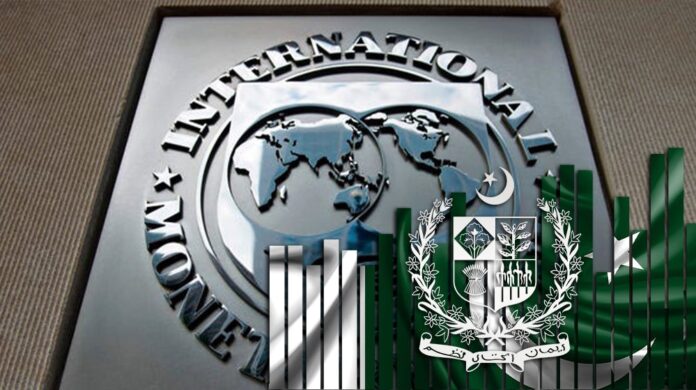The International Monetary Fund (IMF) is prepared to assist Pakistan, emphasizing the importance of reform measures over the size of any new financial program, according to Jihad Azour, the fund’s Middle East and Central Asia director.
Azour, who spoke during a press conference at the IMF 2024 Spring Meetings, highlighted the need to expedite and intensify reforms to unlock Pakistan’s growth potential.
Finance Minister Muhammad Aurangzeb is in Washington to participate in the spring meetings organized by the IMF and the World Bank.
He mentioned that Pakistan has begun discussions with the IMF concerning a new multi-billion dollar loan to bolster its economic reforms, targeting a three-year program.
Aurangzeb assured that devaluation of the Pakistani rupee is not anticipated in the ongoing IMF negotiations. He stated in a Bloomberg interview that there is no justification for the rupee to depreciate beyond the usual annual fluctuation of 6% to 8%.
Despite previous devaluations linked to IMF loans, he believes substantial devaluation is unnecessary this time due to strong foreign reserves, stable currency, and solid performance in remittances and exports.
However, he noted that fluctuating oil prices could pose a risk.
The finance minister also expressed the government’s intent to support key sectors like agriculture and information technology to push economic growth above 4% in the next few years.
He revealed that Pakistan needs about $24 billion for external financing in the upcoming fiscal year but is in a stable position to manage these obligations.
He anticipates an IMF mission visit in May, with hopes to finalize a staff-level agreement by late June or early July.
In discussions with US State Department officials Donald Lu and Elizabeth Horst, Aurangzeb conveyed Pakistan’s commitment to strengthening bilateral relations with the US.
The meeting focused on enhancing economic partnerships in alternative energy, agriculture, climate resilience, and technology.
They discussed American investment prospects in IT, renewable energy, agriculture, and mineral extraction, and Pakistan’s collaboration with US development institutions for mutual growth.
Furthermore, Aurangzeb met with the WB-IMF Pakistan Staff Association, outlining Pakistan’s reforms in taxation, energy, digitalization, privatization, and public-private partnerships, aiming to revitalize the economy and sustain growth.





HOW I FINALLY RECOVERED MY LOST BITCOIN:
Do you need help on how to recover lost or stolen Bitcoin from fake investment scammers? I lost all my Bitcoin to a fake investment scam to someone I met online. After losing my Bitcoin investments, I was determined to find a solution. I started searching for help legally to recover my funds, and I came across a lot of Testimonies about GEO COORDINATES HACKER. I am incredibly grateful for the exceptional service, and wanted to inform you all about this positive outcome. They emphasized their excellent strategy for Bitcoin recovery. In order to assist people and companies in recovering their lost or stolen cryptocurrencies. They guarantee that misplaced bitcoins have an opportunity to be recovered with their excellent services. If you or anyone you know ever finds yourselves in a similar unfortunate situation, I highly recommend reaching out to GEO COORDINATES HACKER. Contact Info Email:
( geovcoordinateshacker@proton.me )
Email; ( geovcoordinateshacker@gmail.com )Telegram ( @Geocoordinateshacker )Website; https://geovcoordinateshac.wixsite.com/geo-coordinates-hack